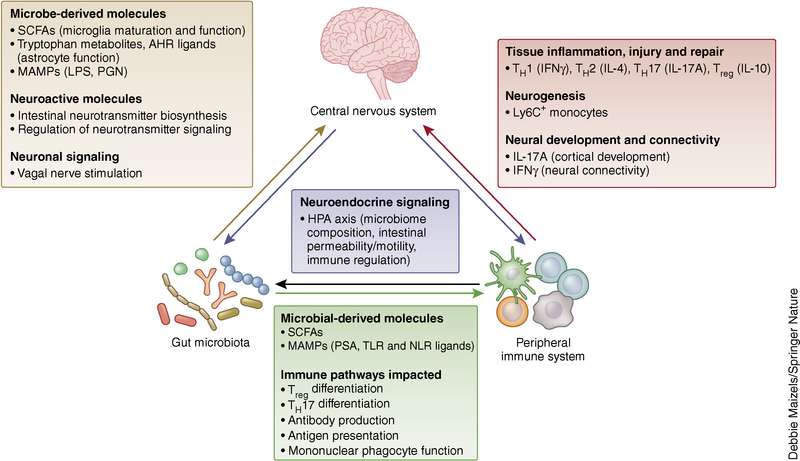Figure 3.
Crosstalk between the microbiota, immune system and CNS. Interactions between the intestinal microbiota, peripheral immune system and CNS are essential for the maintenance of host health. Recognition of microbial derived products such as microbe-associated molecular patterns (MAMPs) and metabolic by-products of microbes (short chain fatty acids, SCFAs) activates distinct immune pathways throughout the host. The microbiota and immune system can independently or cooperatively regulate neurophysiology. Therefore, a prevailing theme in studies aimed at understanding the microbiota–gut–brain axis involves the role of intestinal microbes in modulating CNS function through CNS-resident and peripheral immune pathways. Biochemical changes in the CNS can also lead to altered microbial composition and immune cell responses through the HPA axis. Altogether, these findings suggest that the microbiota, immune system and CNS communicate bidirectionally. Future studies investigating the functional outcomes of these bidirectional interactions will inform the development of new therapeutic strategies for the treatment of neurological disorders. IFNγ, interferon gamma; LPS, lipopolysaccharide; NLR, Nod-like receptor; PGN, peptidoglycan; TLR, Toll-like receptor.

